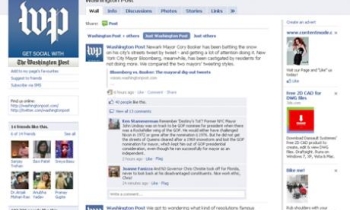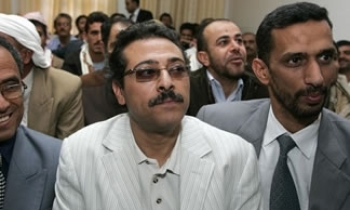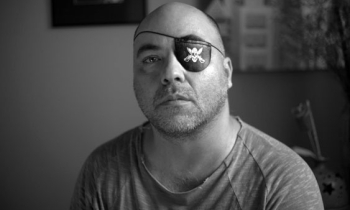Dean Baquet is taking a stand.
The editor of the Los Angeles Times is putting his career on the line, telling his corporate bosses at the Tribune Co. that he cannot abide deeper cutbacks in a newsroom that has already lost more than 200 jobs since the Chicago conglomerate bought the paper six years ago. If the company keeps slashing away, colleagues say, Baquet is prepared to leave.
"I think it's a highly principled stand, but obviously a highly risky one," says John Carroll, Baquet's predecessor as the top Times editor, who resigned last year, in part out of frustration with the constant cutbacks. "Every editor has to have a limit beyond which he won't go, and I guess we've just found Dean's."
A number of subplots are swirling as the Tribune board meets in Chicago today. Twenty civic leaders in Los Angeles have written the company, saying that Tribune should either stop squeezing the newspaper or sell it (possibly to one of several local billionaires who have offered to buy it, including entertainment mogul David Geffen). The Chandler family, which owned the Times for decades and is now the largest Tribune stockholder, has been pushing for a breakup of the company or a sale of some assets to boost the sagging stock price.
In short, one of the nation's largest media companies finds itself at the center of a morality play in which it is cast as obsessed with profits while Baquet is seen as rallying his troops under the banner of quality journalism. Four hundred Times staffers signed a letter that was sent to Tribune yesterday, supporting Baquet and his publisher, Jeffrey Johnson.
"We recognize that they've put themselves out on a limb, and we'd like to be out there with them," says metro reporter Jim Newton. "We wanted to stand up and be counted."
In a response to the 20 local leaders -- who include former secretary of state Warren Christopher -- Dennis FitzSimons, Tribune's chairman, defended his company's stewardship and ticked off a list of improvements. "The portion of the Times' total revenues dedicated to news coverage is currently almost double what it was during what many refer to as the 'golden age' of the newspaper, under Publisher Otis Chandler," FitzSimons wrote. He also noted that the Times had won 13 Pulitzer Prizes since the Tribune acquisition in 2000, five more than it had captured in the previous decade.
Still, FitzSimons noted, "we are committed to a companywide expense control program to offset inflationary cost increases and better deploy our resources."
The battle comes at a depressing time for the newspaper industry, plagued by declining circulation, sinking ad revenue and an Internet culture in which papers are expected to offer their product online at no charge. Shareholder pressure recently forced Knight Ridder to sell its newspaper empire and close up shop. At the Dallas Morning News, 111 of 580 staffers accepted a recent buyout offer. At The Washington Post, 68 of 819 journalists took an early-retirement deal over the summer. The new owner of the Akron Beacon-Journal, one of the former Knight Ridder papers, has axed 39 staffers, almost a quarter of the newsroom.
The shrinking of California's largest newspaper has occurred more gradually. In 2001, the Times was a behemoth, with nearly 1,200 journalists on the payroll. The paper now has 940, and has reported that Tribune executives would like to knock that down to about 800 -- a figure the company has not confirmed.
The essence of the debate is whether newspapers should bow to Wall Street demands for short-term results by slicing their staffs, or whether they are mortgaging their future by crippling the deeper news-gathering that separates them from television stations and Web sites.
Baquet, who is reported by his paper to have refused to give Tribune executives a budget-cutting plan at their last meeting, declined to comment. In an interview with his paper, he said: "I am not averse to making cuts. But you can go too far, and I don't plan to do that. I just have a difference of opinion with the owners of Tribune about what the size of the staff should be. To make substantial reductions would significantly damage the quality of the paper."
Tribune's 10 other papers have been through their own rounds of belt-tightening. The Chicago Tribune let go 28 editorial staffers and ended WomanNews as a stand-alone section in December; editors have finessed demands for more layoffs with an alternative budget-cutting plan. The Baltimore Sun has closed all five of its foreign bureaus.
At the Hartford Courant, which said this week that it is folding its Sunday magazine, staff writer Rinker Buck complained in an open letter to his publisher "that Tribune's 'cost center' mentality is alienating your workforce, driving readers away in droves and contributing to a loss of confidence among advertisers and the civic community."
The showdown with Baquet is the most attention-grabbing since Jay Harris resigned as publisher of the San Jose Mercury News five years ago, with a blast at his Knight Ridder bosses for demanding damaging cutbacks to maintain a 22 percent profit margin.
Analysts don't expect a dramatic announcement at today's Tribune meeting, but say the company -- which has launched a $2 billion program to buy back some of its stock -- will eventually have to decide whether to sell the Times, its 25 television stations or even the Chicago Cubs.
Tribune executives, who declined to comment, have long had a reputation for demanding -- and getting -- an ample return on investment. Carroll says he was pressured to make cuts that would keep the profit margin around 20 percent, where it remains today.
"No doubt some of the cuts were justified," Carroll says. "But there seems to be no end to the cutting and no strategy for stabilizing the paper and building its future. These cuts are prompted by a short-term need to hit financial targets. . . .
"The L.A. Times is one of the four papers that constitute the top tier in American journalism. At the rate the L.A. Times is being dismantled, it won't stay in the top tier very much longer."
Some journalists privately question Baquet's strategy of going public, especially since the Times still has a larger staff than all but a handful of American papers, with a large Washington bureau and a network of foreign correspondents. But the years of cutbacks have decimated the local staffs in such key suburban areas as Ventura County and the San Fernando Valley, while the photo and graphics departments have been reduced by at least a third. "While numbers don't equal quality," says Newton, the Times reporter, "this is a big, complicated region to cover, and it does take a certain number of boots on the ground."
The paper's circulation, which in 1999 was 1.1 million, is now 852,000, down 5.4 percent in the last year alone -- greater than the average decline for big-city dailies but typical of the overall trend.
Baquet came to the job with a gold-plated résumé and a reputation as a demanding yet collegial boss. As a reporter, he was part of a Chicago Tribune team that won a 1988 Pulitzer for exposing waste and conflicts of interest on the City Council. He was a Pulitzer finalist at the New York Times before being elevated to national editor, and left that paper when Carroll tapped him as managing editor.
The new team restored the newspaper's credibility, which had been badly tarnished by a scandal in which an issue of the Sunday magazine was devoted to the Staples Center while sharing ad revenue with the sports arena. When Baquet succeeded Carroll, the Times became the largest newspaper to be run by an African American.
Colleagues who have spoken with Baquet say he does not want to resign, but they also recognize that he and Johnson might eventually be forced out over the impasse.
The parties seemed to be sending a conciliatory signal yesterday, though. Publisher Johnson told his staff in a memo that he met with Tribune Publishing President Scott Smith in Chicago on Tuesday and "reiterated our commitment to build a credible financial plan in the coming weeks that is grounded in actions and initiatives that efficiently build readership and revenue." Johnson did not address the question of further layoffs, but what he called the "awkward" media coverage of internal deliberations may have had an impact on the executives at Tribune Tower.
"Dean has the support of 100 percent of the editorial employees," says Vernon Loeb, the state investigations editor and a former Washington Post reporter. "He's an unbelievably courageous and inspiring leader, and everyone is behind him."
Columnist Tim Rutten agrees that the staff has closed ranks behind Baquet. "If this place were any leaner, it'd be skeletal," he says. "Measured against the ambitions of the L.A. Times, it's a barely adequate number of people. I think there's a feeling that people in Chicago don't understand L.A."









